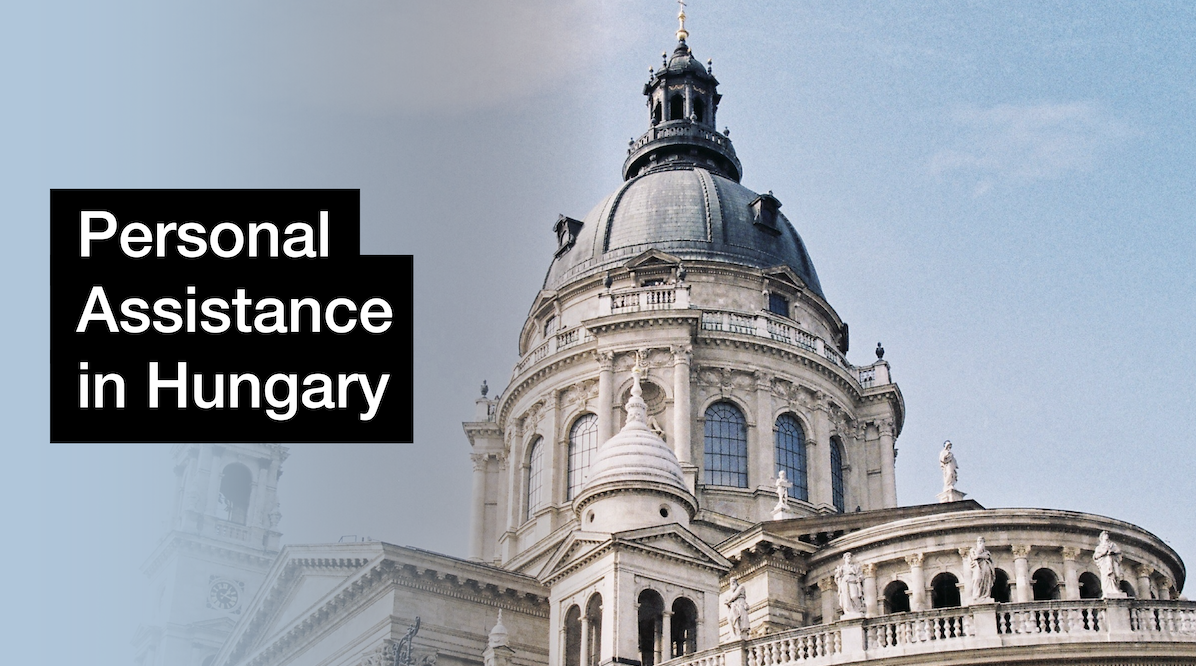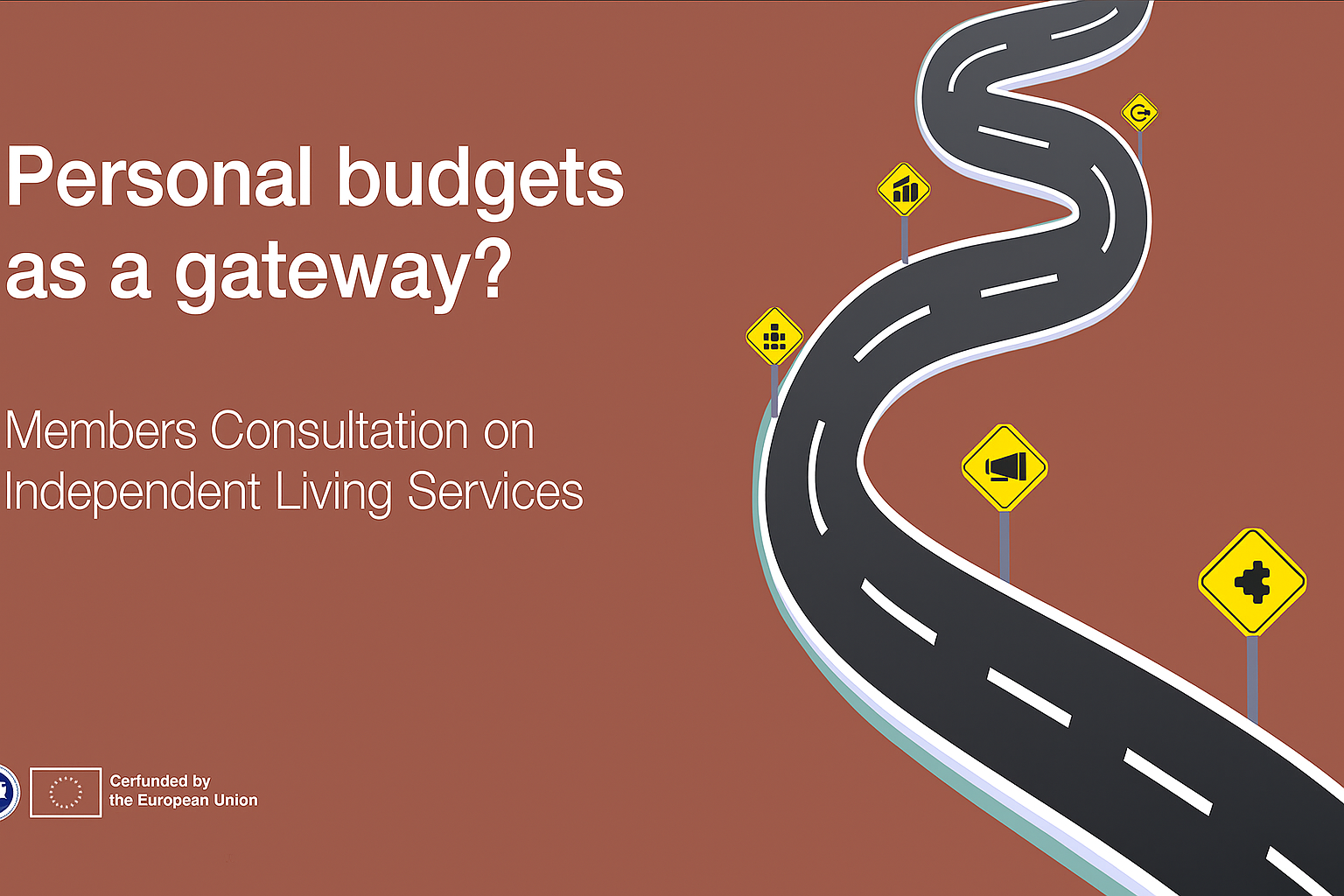Hungary ratified the UN Convention on the Rights of Persons with Disabilities in 2007. The Article 19 of the Convention (Living independently and being included in the community) states that States Parties shall provide personal assistance to support a self-determined life. It could be argued that the existing services in Hungary do not provide support that is in line with Article 19.
During the 1990’s, Hungarian self-advocates and professionals attempted to establish PA services. After conducting promising pilot projects, the implementation into the government regulations failed, and led to a caregiving system that is not flexible and not available on a 24/7 basis; that is not controlled by the users and not based on their choices; and, that is dealing with disability as a medical condition instead of examining it from the perspective of support needs (Sándor – Kunt, 2020).
Recently in Hungary there are home support services for people with high support needs, which are available mostly on weekdays in working hours. This service can not be considered as personal assistance, since in these cases not the person with disability recrute, choose and employ their PAs. The government also provides benefits (eg.: invalidity annuity, rehabilitáción benefit, nursing fee) for people with disabilities (European Commission, 2022), which amount of support is very far from being enough to fund a personal assistance network.
According to a study of the Budapest Institute, about 49,000 people accessed the support service that is currently available and about 250-300,000 more persons could be potential users of PA, including the 40,000 residents of various social institutions (Sándor – Kunt, 2020).
As Adolf Ratzka suggested, we, the Freekey team, started a “one-issue national organization for personal assistance” (Ratzka 2020, p.5). We believe that no one needs to be independent in order to be in control of their life. Freekey was established in 2019 by people with disabilities and by their academic allies. This grass-root organization has three main aims:
- to collect and share knowledge regarding personal assistance;
- to empower people with disabilities to use this service consciously and become confident employers;
- to lobby and to network with stakeholders from government and from the market to make personal assistance available (Freekey homepage).
Building on the theoretical framework of disability studies we consider the combination of activism and academic knowledge as our core values (Cserti-Szauer et al, 2020; Sándor, 2021).
The theoretical, practical, and legal framework of assistance has significantly changed during the past three decades. It is strongly connected to the impact of the activity of disability studies activists and scholars, the influence of the global Independent Living Movement and the unfolding of the theoretical framework of feminist ethic of care and relational ontology (Kunt, 2021).
The credo of Freekey relies on these theoretical frameworks, which emphasizes that the experience of assistance requires new theories which do not value people by their independence. Therefore, we need to deconstruct the meaning of dependence, and focus on the relation phenomenon (Benjamin, 2015). We believe that through our connections, and the constant flow of these connections we are always in the state of becoming (Deleuze – Guattari, 1987). Revealing these connections is the means that helps us to leave binarity, and to pay attention to polyphony, contradiction, uncertainty, and be able to examine entities and voices appearing in concrete relations without essentialism (Braidotti, 2006).
In the year of 2022 the Hungarian government made promising steps to establish the PA-services by ongoing and future grants. Freekey aims to join these calls as professional partners and experts on PA to support the realization of actual and available personal assistance services in Hungary.
Freekey team
November, 2022
References
Benjamin, A. (2015). Towards a Relational Ontology Philosophy’s Other Possibility. Albany, NY: SUNY Press.
Braidotti, R. (2006). Affirmation versus Vulnerability: On Contemporary Ethical Debates. Symposium: Canadian Journal of Continental Philosophy, 10(1), 235–254. https://doi. org/10.5840/symposium200610117
Cserti-Szauer, C., Sándor, A., Katona, V., Könczei, G. (2022). Social Innovation in Higher Education from a Disability Studies Perspective. In: Păunescu, C., Lepik, KL., Spencer, N. (eds) Social Innovation in Higher Education. Innovation, Technology, and Knowledge Management. Springer, Cham. https://doi.org/10.1007/978-3-030-84044-0_13
Deleuze, G. & Guattari, F. (1987). a Thousand Plateaus. London: Continuum.
European Comission (2022) Your social security rights in Hungary. file:///C:/Users/User/Downloads/missoc-ssg-HU-2022-en.pdf. Downloaded: 27.11.2022.
Kunt, Zs. (2021) Personal Assistance in the Context of Cultural Anthropology and Disability Studies. In. Hungarian Journal of Disability Studies & Special Education. 2021/2. . p. 18-24. Doi: 18-24. DOI 10.31287/FT.en.2021.2.3
Ratzka, A. (2020) National Personal Assistance Policies. In. Hungarian Journal of Disability Studies & Special Education. 2022. Special Issue. p.5-9.
DOI 10.31287/FT.en.2020.2
Sándor A. & Kunt Zs. (2020). „A »gondozás« túlélést biztosít számunkra, a »személyi asszisztencia« életet” – A Személyi Asszisztencia Szolgáltatás szakirodalmi hátterének elemző áttekintése. Szociálpolitikai Szemle. VI. évfolyam, 2020/1. pp. 5-27.
Sándor, A. (2021) Self-determination Opportunities of Persons with High-Support Needs. In. Hungarian Journal of Disability Studies & Special Education. 2021/2. p. 9-17. Doi: 18-24. DOI 10.31287/FT.en.2021.2.3



